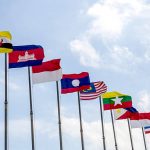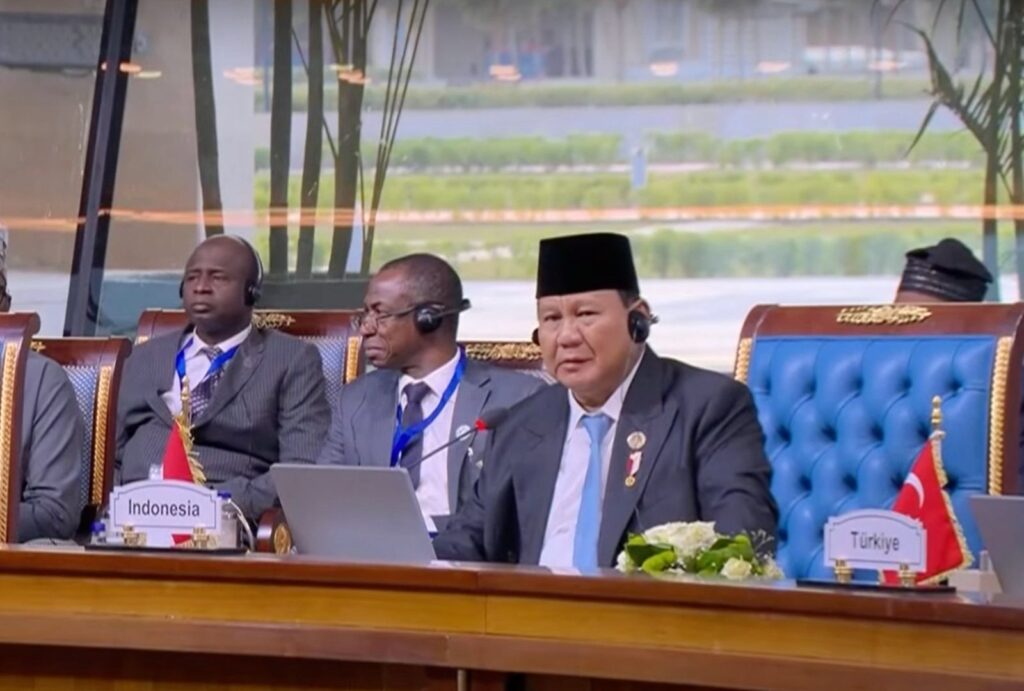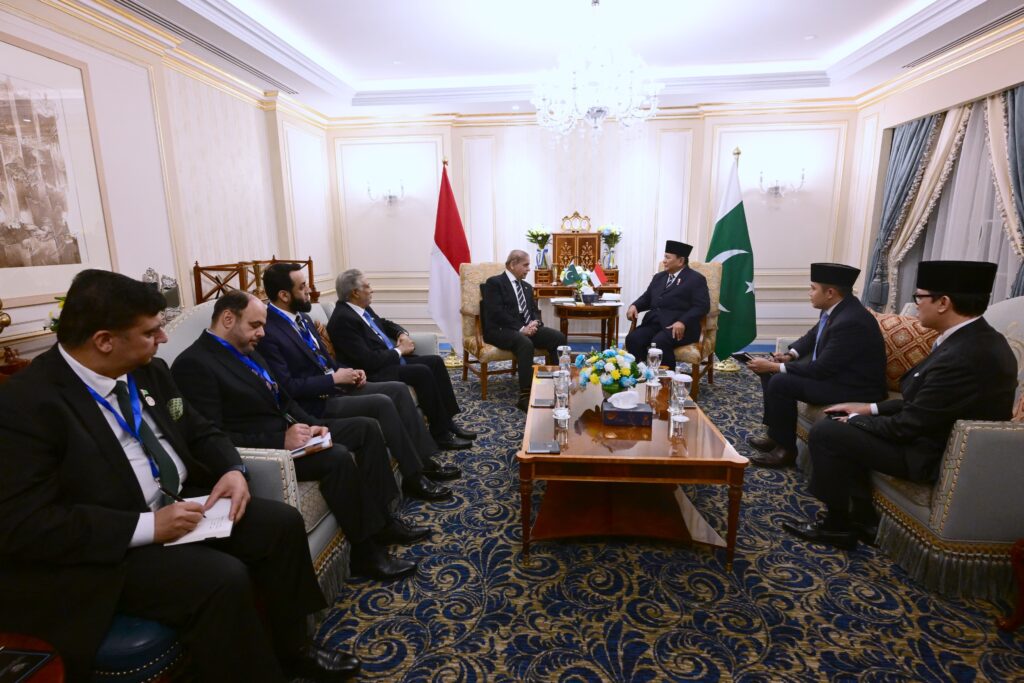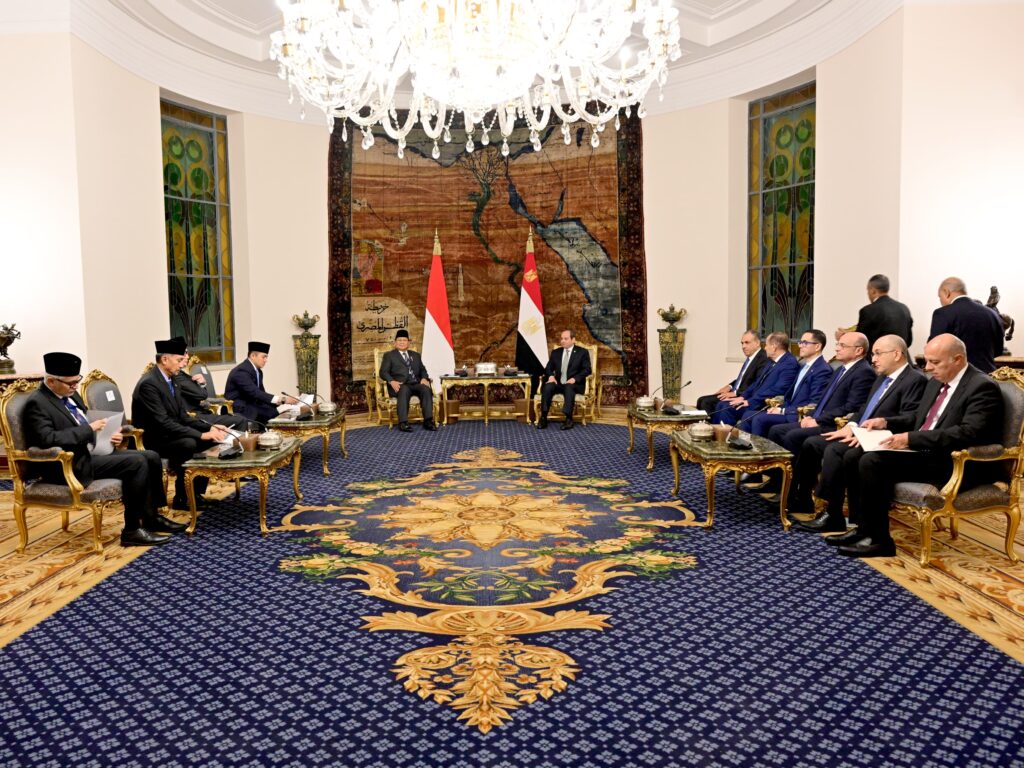Opinion – Serving as ‘Commander of Diplomacy’ in international arena
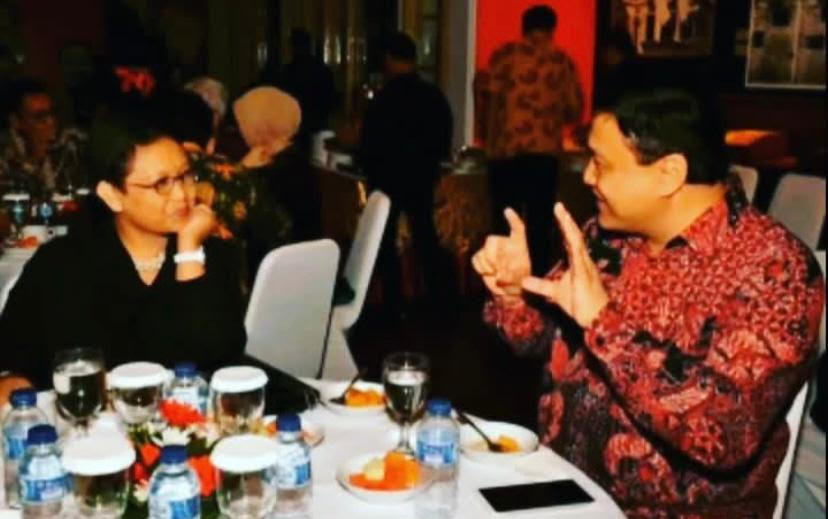
By Aat Surya Safaat
A foreign policy is a component of a national political policy aimed at upholding a national image overseas. In other words, a foreign policy is a reflection of a national interest and is part of an overall policy to achieve national goals.
Jakarta (Indonesia Window) – It is undeniable that a foreign policy is as important as a domestic one. So, it is not surprising that the presidential candidate debate on January 7, 2024, in Indonesia raised the themes of defense, security, international relations and geopolitics, all of which are closely related to the implementation of a foreign policy.
The presidential candidates, namely Anies Baswedan (presidential candidate number 1), Prabowo Subianto (number 2), and Ganjar Pranowo (number 3) at that time told about their respective visions, missions and programs related to Indonesia’s foreign policy if they win in the 2024 presidential election.
A foreign policy is a component of a national political policy aimed at upholding a national image overseas. In other words, a foreign policy is a reflection of a national interest and is part of an overall policy to achieve national goals.
The implementation of Indonesia’s foreign policy so far has adhered to a free and active foreign policy which historically was the embodiment of the thoughts of the country’s first Vice President Mohammad Hatta (popularly known as Bung Hatta), which were summarized in his legendary work entitled ‘Mendayung Antara Dua Karang’ (Paddling Between Two Rocks).
The free-active foreign policy literally has a basic meaning as a condition of being free and unbound, but still active in the context of relations with other countries, both at regional and international levels.
On this matter, the Indonesian Ministry of Foreign Affairs continues to encourage the country’s struggle for world peace, especially the liberation of Palestine from Israeli Zionist colonialism.
This effort is carried out consistently, not only because Indonesia has the largest Muslim population in the world, but because of the constitutional mandate, especially since Palestine is the only country that has not been free from colonialism since the Asia-Africa Conference in Bandung, West Java, in 1955.
In the Preamble to the 1945 Constitution, it is written ‘That in fact independence is the right of all nations and therefore colonialism in the world must be abolished because it is not in accordance with humanity and justice’.
The challenge is not easy
Regarding the foreign policy, Indonesia’s Minister of Foreign Affairs Retno Lestari Priansari Marsudi on several occasions emphasized that the Indonesian Government continues to strive to realize a free-active foreign policy consistently but collaboratively and provides concrete benefits for the Indonesian people.
The positive performance of the government under President Joko Widodo and Vice President Ma’ruf Amin in carrying out the foreign policy for almost the last five years includes a consistent stance in supporting Palestinian independence, including its firm rejection of Jerusalem’s status as the capital of Israel.
In addition, Indonesia can foster relatively good relations with ASEAN and Asia Pacific countries whose economic growth, especially from the tourism and maritime sectors, is very promising.
The Indonesian Ministry of Foreign Affairs under the leadership of Foreign Minister Retno Marsudi has also clearly demonstrated its seriousness in protecting Indonesian citizens abroad.
One of Indonesia’s crucial foreign policy focuses in the future is the continuation of its diplomacy with the two economic giants currently involved in a trade war, namely China and the United States (the U.S.).
As long as China’s policy of investing in Indonesia does not harm the people in the sense that it does not take job opportunities from local residents, then in reality there would be relatively no problems in the Indonesia-China relations.
On the other hand, the Indonesian government continues to strive to maintain good relations with the U.S.
Even though the conditions of the U.S. and China are tense due to the trade war, Indonesia should not be lopsided by prioritizing just one country.
Indonesia must continue to maintain good relations with China as a big country in Asia and the U.S. as a superpower in the world. Indonesia must continue to maintain good relations with both of them.
Apart from that, strengthening the defense system with an increase in the budget every year needs to be one of the policies that must be taken, in addition to building strong maritime sovereignty so that the Indonesian armed forces are always ready and respected by other countries.
In this regard, it would seem appropriate to have an adage, or more precisely a Latin proverb, which states “Si vis pacem para bellum (If you desire peace, prepare for war).
The question then is, what will be the direction of Indonesia’s foreign policy in the next five years? Whoever the president be elected in the 2024 Presidential Election, the implementation of Indonesia’s foreign policy must adhere to the free and active foreign policy in accordance with the mandate of the Constitution.
Visions of the presidential candidates
In the third debate of the 2024 Presidential Election which was held at Senayan sports stadium in Jakarta on January 7, 2024, Presidential Candidate number 1 Anies Baswedan emphasized that the future President of the Republic of Indonesia must be the ‘Commander of Diplomacy’ in the international arena.
According to Anies, in the future Indonesia must no longer be a ‘spectator’, but must become a determinant of the direction of peace and prosperity for all nations at regional and global levels.
For this reason, in the future, Anies wants Indonesia to carry out soft power diplomacy by prioritizing how Indonesian culture, arts and economy help illuminate the world, in which there is an active role of Indonesian diplomats and diasporas.
“That is what we like. “So, what we are doing is making Indonesia a host in our own country, as well as a good guest in other countries,” said the former Governor of Capital City Jakarta, who was also Minister of Education and Culture.
About maritime conflicts regarding the maritime boundaries of several countries in the South China Sea, according to him, the key to the problem is in the hands of ASEAN (the Association of Southeast Nations).
Indonesia must return to being the dominant ASEAN leader to reach all ASEAN countries which are now the entry points for China.
Anies assessed the need for an agreement to be built within ASEAN to resolve the South China Sea issue, and ASEAN must become a regional unit to deal with other countries.
Meanwhile, Presidential Candidate number 2, who is currently Minister of Defense, Prabowo Subianto, stated that Indonesia needs to strengthen defense platforms, especially for patrols in maritime areas.
Prabowo believes that in the future many satellites would be needed to monitor the situation in the South China Sea, and he is of the view that if Indonesia’s defense is strong, then the problems in the South China Sea are expected to be resolved.
Prabowo’s realism was also visible when he deployed defensive arguments against Anies regarding the importance the main weapon system.
He gave an example of the situation in the Gaza Strip, where Palestine is oppressed because it is ‘weak’ and does not have adequate defense equipment.
Regarding the implementation of foreign policy, Prabowo realizes the importance of Indonesia’s foreign policy map because it can influence the dynamics of relations with other countries.
On the same occasion, Presidential Candidate number 3 Ganjar Pranowo expressed the importance of prioritizing Indonesia’s national interests in the foreign political policy.
“Our foreign policy is a tool for negotiations with the outside world, but the national interest must be number one,” said the presidential candidate who also serves as Governor of Central Java.
In this regard, he continued, efforts need to be made to redefine the free and active foreign policy, adapted to current conditions. This is considered important because there is a need to select, sort and prioritize elements that constitute the strength and desires of the nation and state.
“People need to work, people need more jobs, and there must be more investment. So, we must strengthen our diplomatic infrastructure. “We must give ambassadors and diplomats assignments to ‘resolve’ issues of national economic interest in the current context,” he said.
Ganjar also said that the decolonization efforts that had been carried out had become encouragement and confidence to liberate all nations without intervention from each other. In this context, he emphasized Indonesia’s commitment to continuing to support Palestinian independence.
Especially for the South China Sea conflict, Ganjar expressed optimism that the problem could be resolved by drawing up a temporary agreement. Indonesia, according to him, needs to take the initiative to make an agreement to prevent something undesirable.
In addition, he emphasized the need for efforts to strengthen maritime patrols in the disputed area. He also expressed the need for efforts to deploy floating tankers that could be used by the Indonesian army to patrol the area.
Commander of Diplomacy
One of the interesting issues from the Presidential Candidate Debate on January 7, 2024 was the idea conveyed by Anies Baswedan, namely the need for Indonesia to become the ‘Commander of Diplomacy’ in the international arena.
According to him, the president must be the ‘Commander of Indonesian Diplomacy’, in the sense that the country must play a more active role on the international stage. In the future, Indonesia must be ready to become a major actor in the global constellation.
“Indonesia can no longer just be a spectator and passive participant in the world arena. Indonesia must become an ‘agenda setter’ for the conversation and direction of world development,” he stressed.
Specifically regarding the implementation of foreign policy, Foreign Minister Retno also emphasized on several occasions the four priorities of Indonesia’s foreign policy, namely protecting the Republic of Indonesia, protecting Indonesian citizens abroad, intensifying economic diplomacy, and increasing Indonesia’s role on the regional and world stage.
Anies seems to think that what Foreign Minister Retno has done is good, but Indonesia’s progress in the international arena in the future should be more elegant if it is played more often and led directly by the president of Indonesia.
According to Anies, Indonesia must appear at the forefront by giving an example of how Indonesia’s first President Soekarno initiated the Asia-Africa Conference in 1955, even though at that time Indonesia was still poor.
The conference, he continued, was an inspiration for the world. ‘The spirit of Bandung’ has inspired all leaders of independence movements in Africa and Asia.
Anies’ optimism seems to be based on his ability to lobby and establish extensive networking in the international world. Since being a student, Anies has been active in various student organizations and continued and completed his higher education in the U.S.
Anies earned a bachelor’s degree in economics from Gadjah Mada University in 1995 and continued his master’s studies in international security and economic policy at the School of Public Affairs, University of Maryland in America in 1997. He was also awarded the William P. Cole III Fellow at his university, and graduated in December 1998.
Several time later Anies again received a scholarship to continue to the Doctoral Program in political science at Northern Illinois University in America and graduated in 2005.
Regarding his lobbying abilities, Anies once assured UN Secretary General Antonio Guterres of his support for climate action in a speech that was only two minutes long.
Anies, in his speech at a virtual dialogue among governors and mayors who are members of the C40 with the UN Secretary General on April 17, 2021, hoped that the United Nations (UN) can be more active in pushing climate action policies at the state level.
This policy needs to be implemented more aggressively in many cities in Indonesia, especially since the UN has an important role in encouraging the development of cities in the world.
Anies also recently noted history as the first Indonesian to have the honor of being appointed as one of the founding members of the Advisory Board of the International Institute of ASEAN Studies at Oxford University, the oldest, longest-serving and most renowned university in England.
In the future, for a former rector of Paramadina University in Jakarta, the most strategic step is to ensure that the Anies Baswedan-Muhaimin Iskandar couple wins the presidential election, to make Indonesia’s foreign policy be carried out according to his vision of making the President the Commander of the Indonesian Diplomacy.
However and whoever the president and vice President will be, the idea of making the president the commander of the Indonesian diplomacy seems worthy of consideration so that Indonesia can be increasingly considered as an influential country in the international world.
More than that, the Indonesian government in the future must continue to consistently maintain a free-active foreign policy, and the government is required to carry out foreign policy as flexibly as possible without ignoring national interests.
End
*Aat Surya Safaat is an assessor for the Indonesian Journalists Association (PWI)’s journalist competency test. He is also an Advisor to the Indonesian Academic Forum (FAI). This senior journalist was the Head of the ANTARA New York News Agency Bureau for the 1993-1998 period and ANTARA News Director 2016.

.jpg)

